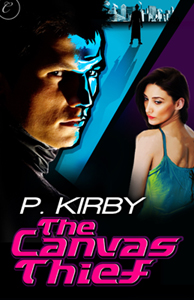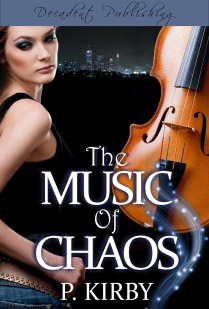Alternate Title: “Why This Excerpt Sucks.”
PROLOGUE
“They’re coming,” said Mary. “They should be here tonight.”
“Tonight?” said Bob. “That soon? Can anything be done to stop them?”
“No. Nothing.” Mary stared out the window, clutching her shawl around her shoulders. “It will be worse than before.”
“The last time they came, it was horrible,” said Bob. “Will we fight? Can we fight?”
“I don’t know,” said Mary.
“Do we have weapons? Can they die?”
“I don’t know.”
Oh, good grief. Who are “they” and why is everyone being so obtuse? One shouldn’t mistake my questions for a desire to read more. The problem? The writer is trying to build a sense of mystery by not giving me any information. Newbie writers, in particular, are drawn to this ploy.
No, I’m not suggesting that injecting mystery into your plots is a problem. At issue is the practice of withholding information from the reader in a self-aware, obvious manner that reeks of desperation. “Please read more. Aren’t you fascinated?” Alternately, the writer seems to be saying, “Wink, wink. I have a secret. I know something you don’t know.”
Either way, it amounts to a form of authorial insertion and it’s just plain annoying.
Writers often defend the practice by saying, “But I can’t tell you who ‘they’ are or what they ‘did,’ because that would spoil the story.”
No, it won’t ruin the story. Especially if you’ve pulled this sneaky crap in the beginning of the story, worse yet, in a prologue*. Look, at this point, I don’t know shit about your story. Nothing, nada, zilch.
Let’s say the “mystery” is the villain’s identity. Guess what? You could safely reveal the villain’s name (Lothor) and his motives (to find the perfect cup of tea) without impacting the story. That is, provided you don’t say, “This here is Lothor who will carry out a campaign of terror across the known universe, destroying all that is good and fuzzy-wuzzy, on his search for the perfect cup of tea,” you can plunk him onstage, give him a name and show him puttering about, filling his tea kettle and grumbling about the quality of tea leaves.
I don’t know Lothor. I don’t know he’s crazier than a shithouse rat. I’m not going to guess, immediately, that he’s the villain.
You know your novel, its characters, and world like the back of your hand. (“Back of your hand?” What a stupid saying. I wouldn’t know the back of my hand from the back of any other hand of any other somewhat tanned Hispanic female…but I digress.) To you, the plot is a completed jigsaw puzzle and every little piece seems to broadcast the story’s conclusion.
Me, the reader? I’m looking at one itty-bitty piece. It looks sort of like a dog’s ass, or maybe it’s an eyeball. Hell if I know. It’s your job, as the writer, to get me all the pieces (without the wink-wink, nudge-nudge) and guide me to the conclusion with a well-crafted plot.
You know what? A certain percentage of your readers are going to figure stuff out before the story ends. That’s okay. In fact, that probably means you’ve done your job right. For this reader, that’s part of the fun of reading: assembling the pieces, trying for the best fit and sometimes getting it right without being told. Makes me proud as a toddler who just tied his shoelaces for the first time: “I did it all myself.”
Here’s the deal. You can’t develop a sense of mystery with a total absence of information. Why are people fascinated by the mystery of Stonehenge? Or the Anasazi? Or the statues on Easter Island? Because sometime in the distant past, prehistoric people cobbled together fantastic structures that we can still see today, touch, and otherwise study. Because they left us something really amazing and didn’t bother to leave the assembly instructions.
But they left us something. And that something fuels the imagination and drives us to learn more. You have to do the same as a writer. Only here, substitute “Stonehenge,” with cool characters, great dialogue and vivid description. Being coy, waving your wand over a magic hat and saying, “Abracadabra, presto-chango” without actually showing what’s under the hat isn’t going to make me stick around for the rest of the show.
Build a mystery by writing the story, not by telling me that there’s a mystery.
*This being why I dislike prologues, even in published novels. They rarely provide anything immediately meaningful to the main story. Instead they’re used to plop in a chunk of backstory (that I forget as soon as the main story starts) or set a mood. “Lookee! It’s a vampire. He’s stalking victims in 1880s London. Never mind that the story is set in contemporary Japan and that the vampire won’t arrive until pg. 225. It’s a vampire story. Really! The prologue proves it.”



